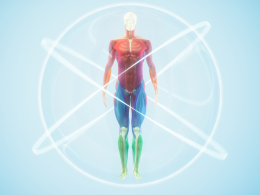It’s easy to reach for a bottle of antibiotics whenever we’re feeling under the weather, but could this quick fix be doing more harm than good? In recent years, there has been growing concern about the overuse of antibiotics and its impact on our health. From contributing to antibiotic resistance to disrupting our gut microbiome, the drawbacks are clear. So before you pop another pill, read on for six reasons why antibiotics may not be the answer after all.
Antibiotics are Overused
1. Antibiotics are Overused:
Antibiotics are one of the most commonly prescribed medications in the United States. They are also one of the most overused and misused medications. Up to one-third of antibiotic prescriptions in the U.S. are unnecessary, according to a report from the Centers for Disease Control and Prevention (CDC).
One of the reasons why antibiotics are so overused is that they are often prescribed for conditions that they cannot treat, such as viral infections like colds and flu. When antibiotics are used for these conditions, it can lead to antibiotic resistance, which is when bacteria become resistant to the effects of antibiotics. Antibiotic resistance is a major public health concern, and it’s one of the reasons why it’s so important to use antibiotics only when they are truly needed.
Another reason why antibiotics are overused is that they are sometimes prescribed unnecessarily broad-spectrum antibiotics, which can kill both good and bad bacteria in the body. This can lead to problems like diarrhea and yeast infections. Taking probiotics (friendly bacteria) while on antibiotics can help to minimize these side effects.
If you think you might need an antibiotic, be sure to talk to your healthcare provider about whether or not it’s truly necessary. And if you do need an antibiotic, be sure to take it exactly as prescribed and finish all of the medication even if you feel better before you finish it.
Antibiotics are Ineffective Against Viruses
1. Antibiotics are Ineffective Against Viruses
It’s a common misconception that antibiotics can cure any infection, but that simply isn’t the case. Antibiotics are only effective against bacteria, not viruses. So, if you’re suffering from a viral infection, taking antibiotics won’t do you any good.
Antibiotics May Cause Side Effects
It is important to be aware that antibiotics may cause side effects. Some of the more common ones include:
-Diarrhea: This is a common side effect of antibiotics. It is usually mild and goes away on its own, but it can sometimes be severe. If you have severe diarrhea, you should contact your doctor.
-Nausea and vomiting: These are also common side effects of antibiotics. They usually go away on their own, but if they are severe, you should contact your doctor.
-Skin rash: A skin rash is a possible side effect of some antibiotics. If you develop a rash, you should contact your doctor.
-Yeast infection: Women who take antibiotics may be more likely to develop a yeast infection. If you develop symptoms of a yeast infection, you should contact your doctor.
Antibiotics May Lead to antibiotic resistance
1. Antibiotics may lead to antibiotic resistance.
Antibiotic resistance occurs when bacteria evolve in response to the repeated use of antibiotics. This can happen when people take antibiotics for conditions they don’t have, or when they stop taking them before completing the prescribed course. Over time, the bacteria become resistant to the effects of the antibiotic, making it less effective at treating infections.
Some strains of bacteria are already resistant to certain antibiotics, and this resistance is increasing as more antibiotics are used. The spread of antibiotic-resistant bacteria is a major public health concern, as it can make infections more difficult to treat.
2. Antibiotics can have side effects.
Side effects from antibiotics are relatively common and can range from mild to severe. The most common side effects include diarrhea, nausea, and vomiting. Some antibiotics can also cause allergic reactions, which can be serious and even life-threatening.
3. Antibiotics can disrupt the natural balance of good and bad bacteria in your body.
Antibiotics work by killing bacteria, but they don’t discriminate between good and bad bacteria. This can lead to an overgrowth of bad bacteria, which can cause infections or other problems. Probiotics are live microorganisms that help replenish the good bacteria in your body; taking them along with antibiotics may help reduce some of the side effects and maintain a healthy balance of gut flora.
Alternatives to Antibiotics
There are many alternatives to antibiotics that can be just as effective in treating infections. These include:
-Antibacterial essential oils: These oils have natural antibacterial properties that can help kill bacteria and viruses. Examples include tea tree oil, oregano oil, and lavender oil.
-Probiotics: These are live microorganisms that can help restore the balance of good bacteria in the gut. This can help the body fight off infection more effectively.
-Herbs and spices: Certain herbs and spices have antimicrobial properties that can help kill bacteria and viruses. Examples include garlic, ginger, turmeric, and cumin.
-Vitamin C: Vitamin C is a powerful antioxidant that can boost the immune system and help the body fight off infection.
Conclusion
We have discussed six reasons why antibiotics are not the answer when it comes to treating infections. While antibiotic use is still important for some conditions, it should be used judiciously and only after other alternatives have been exhausted. It’s essential that we all work together to reduce our dependency on antibiotics so that future generations can benefit from their healing properties without fear of resistance. Thank you for reading!











